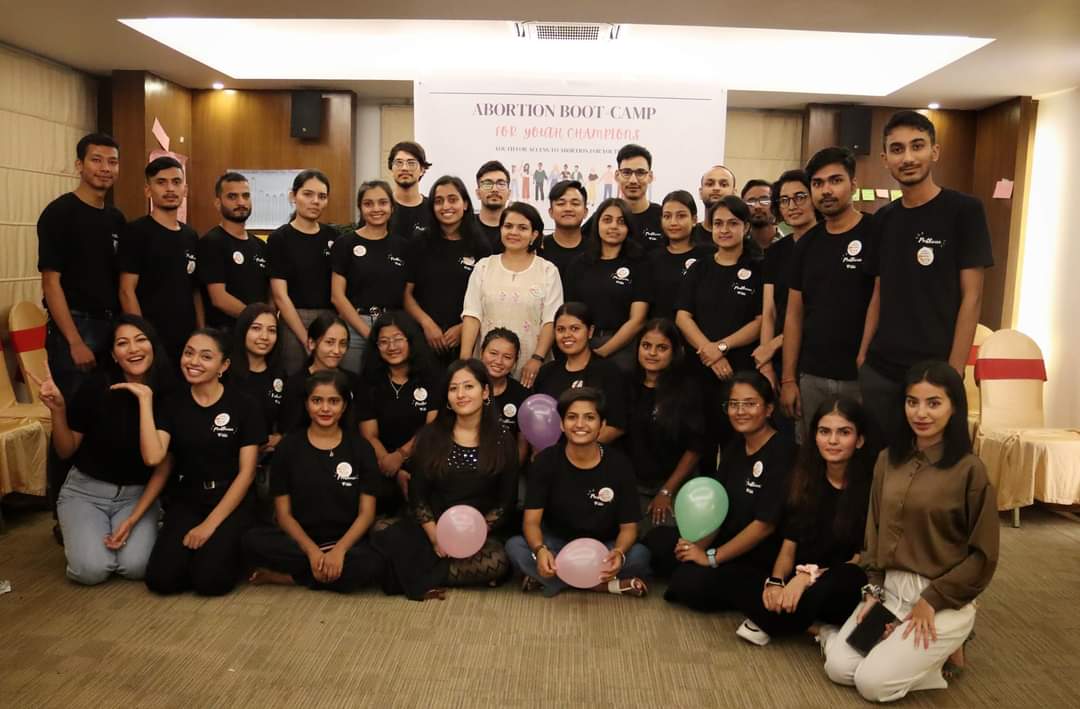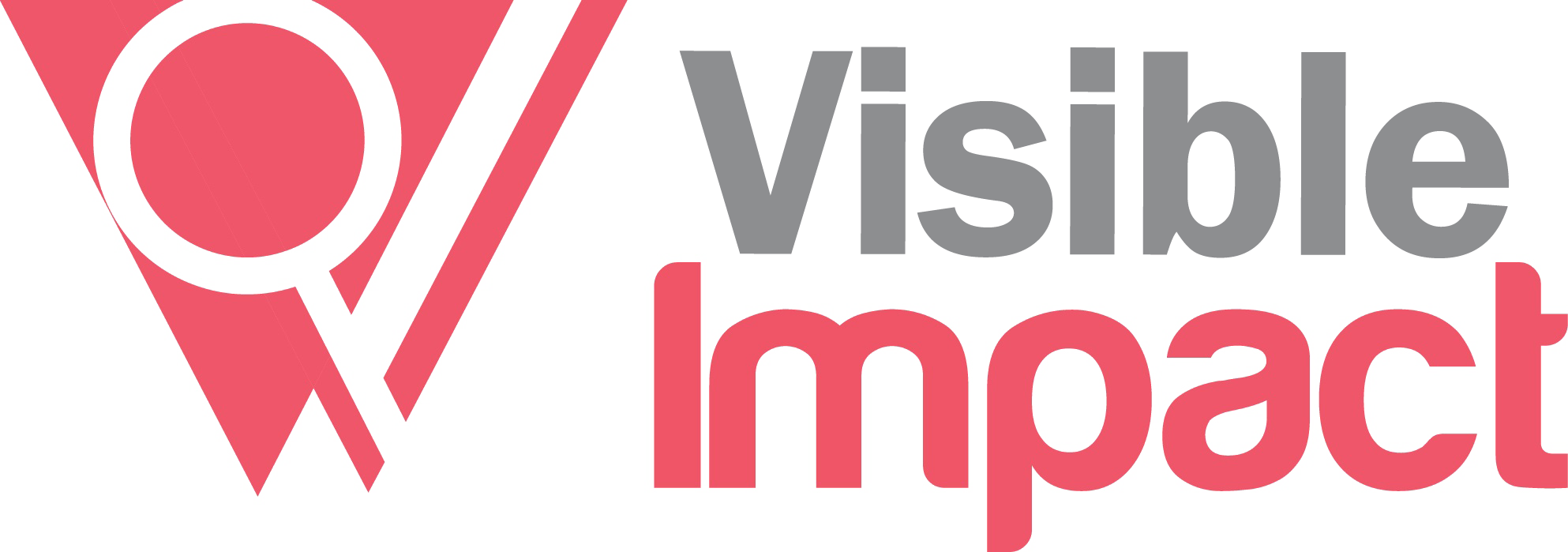
Year: 2022 - 2024
Supported by: Safe Abortion Action Fund
Major Component: Advocacy, Sensitization, Safe Abortion, Value Clarification, Young People
Despite abortion being legal in Nepal, many women of reproductive age are unaware of their rights, leading to common incidences of unsafe abortion due to stigmatization and misinformation perpetuated by the media. The project collaborates with young advocates, health professionals, and media personnel across all seven provinces to change attitudes and dispel myths about safe abortion. Engaging stakeholders in Karnali and Gandaki provinces, which are yet to fully implement the Safe Motherhood and Reproductive Health Rights Act 2018, the project aims to support the implementation of the act at the provincial level. Additionally, the project prioritizes advocating for the decriminalization of abortion, based on a suggestion during Nepal's Universal Periodic Review. Healthcare providers will undergo intensive VCAT to ensure they can provide adolescent and youth-friendly SRHR services, including safe abortion, addressing the challenges faced by young people in accessing these services.
A 3-days intensive abortion boot camp was conducted on 20-23 September 2022 in Kathmandu to train the selected 28 YAAY Youth Champions (four in each of seven provinces) all across Nepal to equip them with safe abortion advocacy skills along with clarifying values on safe abortion. The boot camp included sessions from experts on Gender and Sexuality, Sexual and Reproductive Health and Rights, Contraception, Abortion, Legal grounds for Abortion, Community advocacy, and so on. These youth champions belonging to the age group of 18-30 majorly representing public health, medicine, nursing, and business management backgrounds prepared their respective provincial advocacy workplans and are conducting their activities based on the champions’ ToR in accordance with these workplans.
Our YAAY youth champions have conducted a total of 31 community-based safe abortion awareness sessions this semester. The geographical reach of these sessions extends to 15 districts covering all seven provinces of Nepal. The sessions which were conducted in various colleges, schools, health posts, local government offices, and health offices included a total of 1011 participants throughout Nepal. In almost all sessions, the participants expressed having had a discussion about abortion for the first time. Similarly, champions have marked and celebrated important days such as National Condom Day, Menstrual Hygiene Day, International Youth Day, 16 Days of Activism against Gender-Based Violence, and One Billion Rising Day.
A total of 3 lobby meetings have been conducted in Gandaki and Karnali provinces of Nepal with the aim of advocating with the provincial policymakers to fully implement the Safe Motherhood and Reproductive Health Rights Act 2075 and Regulations 2077. Upon repeated interactions, it was found that no discussions dedicated to the Safe Motherhood and Reproductive Health Rights Act 2018 initially had taken place with the participation of all health-related authorities of the province. Both provinces were found to have adopted the federal act in the province. However, there were areas where intervention was needed for more effective implementation. Several issues and gaps such as lack of clarity in the listing process of safe abortion service providers, private sector regulation, low legal awareness among communities, issues in sex-selective abortion, lack of accessibility of safe abortion services, etc. were identified and discussed upon. Further, the policymakers assured to work with the local governments for effective implementation and suggested the federal government for further improvisation of the act.
A 3-day VCAT on safe abortion in Karnali province was conducted among a total of 36 representatives from the provincial social development ministry, health directorate, human resource development center, one-stop crisis management (OCMC) center, and representatives from all 10 districts of the province participated in the VCAT. The participants had an earnest zeal to learn and unlearn their values on safe abortion and were active in sharing their personal experiences of safe abortion service provision. These participants have now pledged to advocate for and provide services in a non-judgmental and youth-friendly manner.
An intensive 2-day Value Clarification and Attitude Transformation (VCAT) on Safe Abortion was conducted on 25-26 February 2023 to clarify values, address the existing stigmas, and develop non-judgemental attitudes on abortion to the selected 35 media fellows from all seven provinces across Nepal. The training covered intense sessions on Sexual and Reproductive Health and Rights, Abortion, facts and figures around Abortion in Nepal, VCAT activities to understand values around abortion, clarify and transform attitudes, and a session on experience sharing on evidence-based reporting. The sessions were led by experts working and advocating for abortion for a long period of time, senior advocates, and senior media professionals.
After the training, as per their Terms of Reference, a specific work plan for publishing 3 articles during their one-year-long fellowship was prepared. In order to be approved for publication followed by compensation, the articles should be non-stigmatizing, with non-misleading captions, appropriate pictures, and words with correct facts and figures. Meetings as per the need and follow-up calls are maintained with the fellows to ensure smooth communication during their fellowship.
A 3-day intensive abortion boot camp was conducted to clarify values and transform attitudes on safe abortion to 20 healthcare providers in Sudurpaschim province. 20 healthcare professionals from all across 9 districts of Sudurpaschim Province were invited to the boot camp. The invited healthcare professionals are working as Medical Officers, Senior Auxiliary Nurses and Midwives, Nursing Incharge, and Nursing Inspectors providing safe abortion services at district hospitals and One Stop Crisis Management Centres across the province.
The boot camp covered sessions on Gender, Patriarchy, and Bodily autonomy followed by the sessions on Sexual and Reproductive Health and Rights. VCAT sessions were mainly focused during the boot camp to understand their values on abortion, clarify any existing myths, and bust stigmas transforming their attitudes towards abortion as a healthcare. While the VCAT sessions were led by experts working on abortion for a long period of time, a senior advocate led sessions on the history and timeline of abortion laws in Nepal highlighting the current scenario. Sessions on Adolescent and Disability Friendly Health Services were also incorporated to discuss their specific needs, address barriers faced by adolescents and persons with disabilities in seeking abortion services, and ensure inclusive service provision.
The participants were really involved and interactive during the sessions learning and unlearning their values on safe abortion while also sharing their personal experiences of safe abortion service provision. Healthcare providers have now pledged to advocate for and provide services non-judgmentally and youth-friendly.
Following the Abortion Boot-camp for Health Care Providers, a lobby meeting was held at the Provincial Health Directorate, Doti, Sudurpaschim Province with 13 provincial health authorities of the province working at the Health Directorate, District Hospitals, and Health Offices of the province. The discussions were mainly focused on the recently launched Adolescent Friendly Health Service Operational Guideline 2022 which most of the health authorities were not aware of as it was recently endorsed, current practices in the province, and implementation status with further plans regarding the guidelines. Further discussions also led to conversations on the Disability Friendly Health Services guideline 2022 which was also recently endorsed by the federal government. It was our first interaction with the officials of Sudurpaschim Province and they were really welcoming and enthusiastic about working on the area of safe abortion, and SRHR needs of adolescents and youth in their province, and welcomed us for further collaboration and support.
The strategic meeting brought together around 30 members from RHRWG, the Convention on the Elimination of All forms of Discrimination Against Women (CEDAW) committee, and other CSOs working on policy-level advocacy on Safe Abortion to strengthen our collaborative efforts for generating support and commitment of federal level decision makers to decriminalize abortion in Nepal. The meeting informed and initiated discussions on where Nepal stands in the process of decriminalization of abortion and developed strategies for strengthening our collaborative efforts towards decriminalization of abortion in Nepal. We also discussed the way forward, strengthening our efforts along with engaging youth in the process.
Following the strategic meeting, we decided to develop video messages to support and take forward the decriminalization process. The script is designed with the aim of creating a supporting environment for the decriminalization of abortion in Nepal. The videos are based on the stories/statements of the script which are well-researched, and evidence-based, and are based on the case stories that highlight why decriminalization of abortion is so necessary and the impact people, especially girls and women are facing as its consequences. Additionally, a series of guiding questions for developing response/opinion videos with experts addressing the challenges and way forward for the decriminalization of abortion in Nepal is also developed.
The script which was developed for the video with the aim to create a supportive environment for the decriminalization of abortion in Nepal has been finalized. The script includes 3 real-life cases which are well-researched, and evidence-based and represent the consequences the general population, especially girls and women, are facing due to the criminalization of abortion beyond certain conditions. Following each case story, a series of guiding questions have been added and directed toward experts who have been working on the area of safe abortion for a long period of time. Considering the topics covered around decriminalization in the script, three experts and one youth activist have been finalized as speakers where they will be addressing the challenges faced and the way forward for the decriminalization of abortion in Nepal emphasizing the urgent action needed upon it.
Addressing the topic of decriminalization in Nepal, we had planned to support the activities of RHRWG and the Forum for Women, Law, and Development (FWLD) for the same cause. Marking the National Safe Abortion Day in Nepal and its theme of “Safe Abortion is a right, not a crime”, a flash mob was organized in collaboration and support from FWLD and RHRWG. The flash mob was followed by a quiz contest and prize distribution among the audience.
In collaboration with the RHRWG and Menstrual Health and Hygiene Partner’s Alliance (MHM PA) Nepal, this time around under this activity, we collaborated with the groups to organize a day program addressing Menstrual Hygiene Day which also addressed other pressing issues on Sexual and Reproductive Health and Rights including safe abortion. The event incorporated meaningful conversations through panel discussions, presentations, and youth participation. Further, live art was also performed in this activity.

611, Shrijanshil Marg, Basundhara, Kathmandu, Nepal
phone : +977 9847697791
Email : mail.visim@gmail.com
Website : www.visim.org
Visim envisions creating visible impact on lives of every girl, every woman and every youth by unleashing the social and economic leadership of girls, women and youth through beneficiary-partnered innovative interventions.